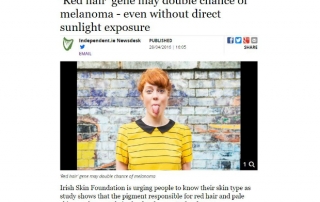Digital dermatoscopy and full-body scan (total body scan) for early detection of melanomas
European consensus-based interdisciplinary guideline for melanoma recommends sequential dermatoscopy and full-body photography (total body scan) A recent publication in the scientific journal European Journal of Cancer confirms the role of sequential digital dermatoscopy and full-body scan (total body scan) for early detection of melanomas in high risk individuals. The device is 1,5m apart from the patient and



